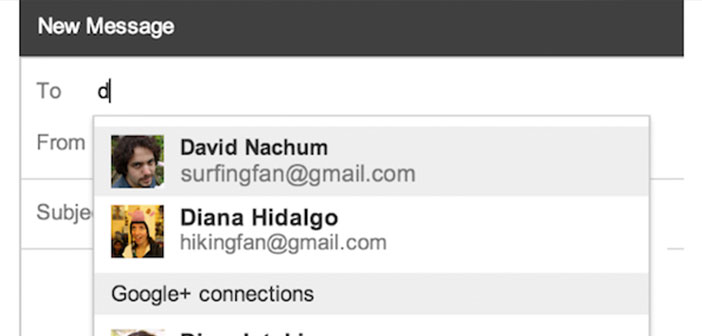Google and privacy, a topic that will never run dry. Eternal source of division over who has fully embraced the services of Mountain View and those who are looking forward to staying there as far as possible, was also recently the subject of advertising campaigns ” Scroogled ” Microsoft, in which the company of outgoing Steve Ballmer has not been spared in beating the button on the exposure of personal data through Chrome, Gmail and other products of the Big G.
Of course, watching from a point of view as much as possible blunt, none of the three, also including Apple. The devil is in the earth nor the holy water, for the purpose of profit. It is impossible for a company to act solely and exclusively for the well-being of its members. What is certain is that certain aspects of the modus operandi of Google do little to calm the bad reputation among critics, including the innovation of today that crosses the streets of Google+ and Gmail.
The operation is quite simple: when composing an email if you do not know your Gmail email address of a person, by typing the name into the relevant field will perform a search in Google, so finding the profile of the desired contact if in writing. It will not then nothing to do but press on his name and send your message. The recipient’s address will not be revealed to the sender until the first decides to respond. Through a special setting, the user can determine whether and who can be contacted via email through the Google search, while a dedicated link will take up cases of spam or unwanted senders.
So far, it all seems pretty quiet, aimed especially at speed communication via email through Google’s services. Too bad the feature, at least in the form in which it was announced, it appears decidedly aggressive, since, as reported by The Verge, it will be enabled by default on all accounts Google+ / Gmail. You will then need to manually turn it off, do some quick and easy to make but still annoying with such delicate features that should be handled through opt-in and opt-out. The hornet’s nest of controversy, of course, it was not made to wait long. The new feature ” a couple ” will be released in the next few days, a short time, but it is hoped that allows Google to make any corrections to the whole mechanism.

